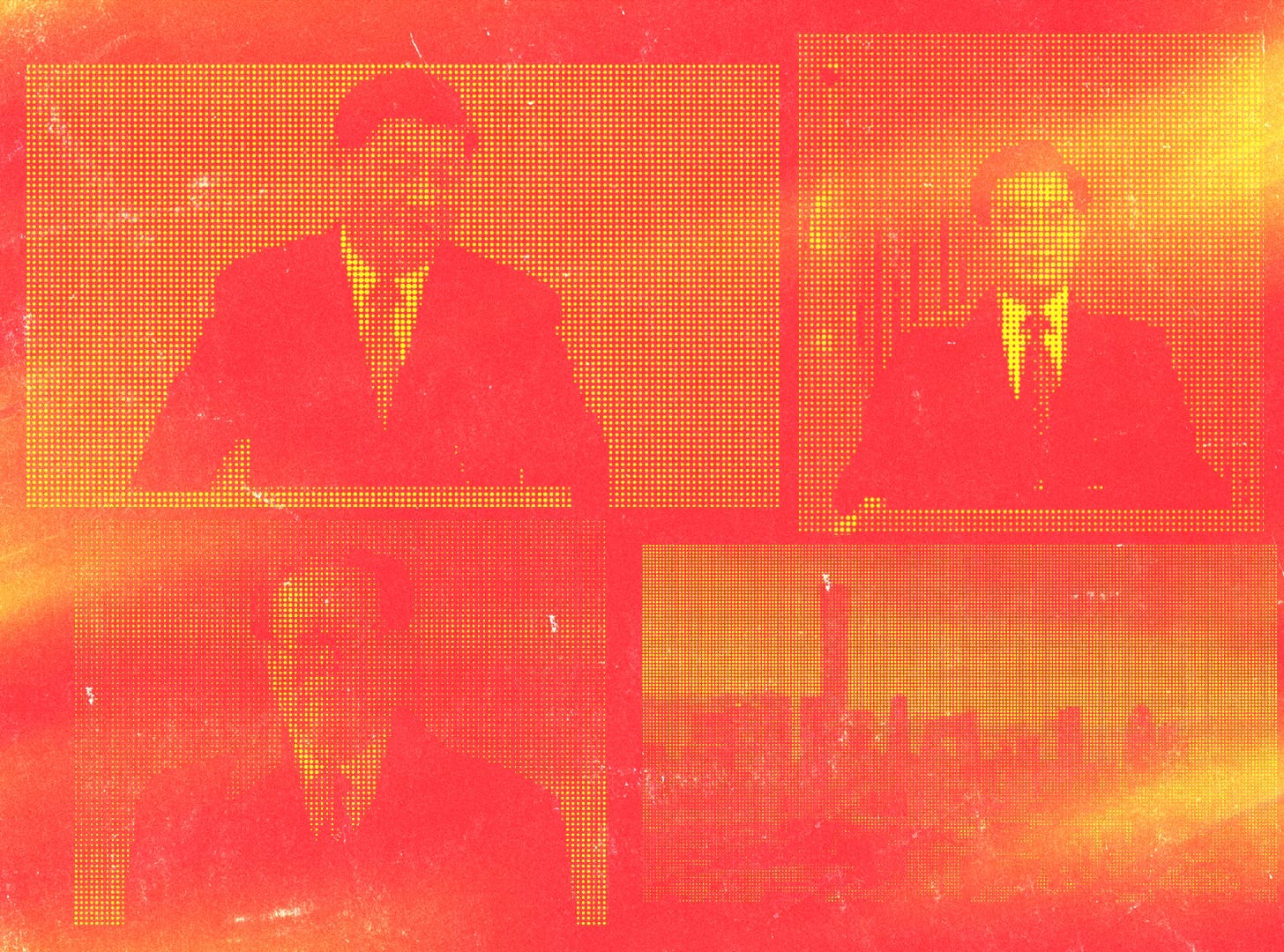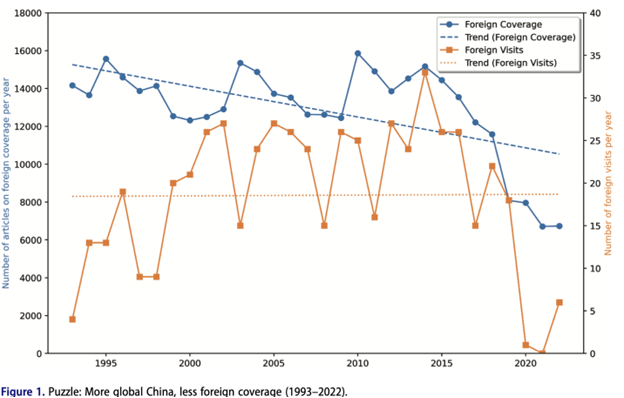How Power Shapes what China Reads
As Chinese leaders consolidate authority in their second terms, objective foreign news coverage gives way to propaganda.
Over the past few decades, China has solidified itself as a major power in international politics, undertaking ambitious projects to increase its global presence, such as the Belt and Road Initiative. Meanwhile, domestically, the Chinese Communist Party (CCP) tightly controls access to information. State propaganda is often channeled through official media, particularly articles published in the People’s Daily (PD). Yet, as China’s global activities have expanded, foreign news coverage of other countries has diminished. This raises an interesting question: what determines how the Chinese government presents its ascent on the world stage to a domestic audience?
In their recent publication, Jianbing Li (University of Hong Kong), Jack Zhang (University of Kansas), Duoji Jiang (University of Chicago), and Weifeng Zhong (Mercatus Center at George Mason University) aim to address this question. Though China is increasing its international presence, the authors theorize that domestic politics more significantly influences foreign news coverage in the PD. They show that as Chinese leaders consolidate power in their second term, they gain more editorial control and use it to suppress objective foreign news coverage—a trend most pronounced during Xi Jinping’s tenure. Thus, the narrative of foreign news is more strongly related to increasing state control than to changes in international relations. The study’s findings present important evidence regarding how authoritarian leaders use propaganda to signal strength and maintain China’s one-party rule.
Existing literature suggests that foreign news coverage should be increasing throughout Xi Jinping’s tenure for two reasons. First, China has taken an active role in global affairs under Xi’s administration. Second, China has increased its economic interdependence, which past research suggests should influence foreign news coverage, as the Chinese media tends to favor countries with the strongest economic ties. Contrary to existing theories, the authors find that foreign news coverage in the People’s Daily has dramatically decreased since Xi’s administration. To understand why this might be the case, they analyzed over one million PD articles using text analysis to test three key hypotheses:
Chinese political leaders in their second term have more influence on PD coverage, subsequently reducing foreign media coverage.
Xi Jinping exerted the most influence in his second term compared to previous leaders, leading to the greatest reduction in foreign media coverage.
The reduction in foreign news is greater in news pieces compared to editorial pieces.
The regression analysis demonstrates that the PD publishes significantly fewer foreign news stories in the leaders’ second terms, affirming the first hypothesis. This indicates a transition from objective to subjective foreign media coverage. Since the PD has limited page space, editors strategically pick what to cover, fulfilling the CCP’s narrative goals. As Chinese leaders consolidate power in their second term, the editors dedicate more space to propaganda, signaling the leaders’ increasing authority, which results in more editorialized coverage of foreign affairs and fewer news articles.
Additionally, the authors’ data corroborated the second hypothesis, revealing that the greatest reduction in foreign news coverage occurred during Xi Jinping’s second term. This pattern suggests an alignment of the CCP’s media narrative and Xi’s ambitious political goals. The findings further underscore Xi Jinping’s uniquely rapid consolidation of power during his first and second terms. The decline in objective foreign news during Xi’s tenure began well before the US-China Trade War and COVID-19, suggesting a clear interplay of domestic politics and media prioritization.
To assess the final hypothesis, the authors conducted a content analysis of PD’s foreign news coverage during President Hu Jintao’s first and second terms. They found that foreign news coverage decreases in his second term, but political commentary on international affairs increases. When leaders gain political power in their second term, PD editors make a deliberate choice to amplify their opinions in news pieces, increasing the number of politicized editorial pieces related to a foreign country while foreign news coverage decreases overall. Hu is widely seen as a weaker leader than Xi, so finding that the power consolidation mechanism holds during his tenure lends credibility to the overall theory.
Ultimately, the study highlights how Chinese leaders, especially Xi, have reduced objective foreign news coverage as they consolidate power. This has important implications for China’s foreign relations because the PD is a primary source of news that influences public and elite opinions, but as the coverage becomes less objective, there is a greater risk that public understanding of foreign policy in China will be distorted. The authors recommend that future research should focus on investigating methods used to create political narratives and how they are weaponized by authoritarian governments.





